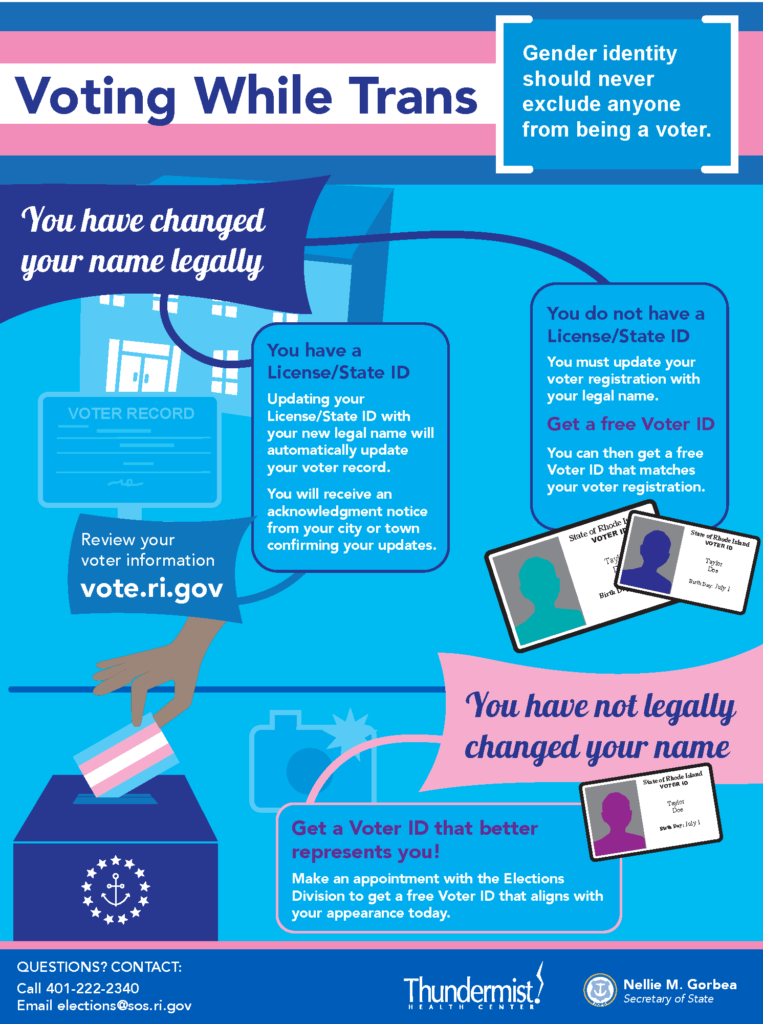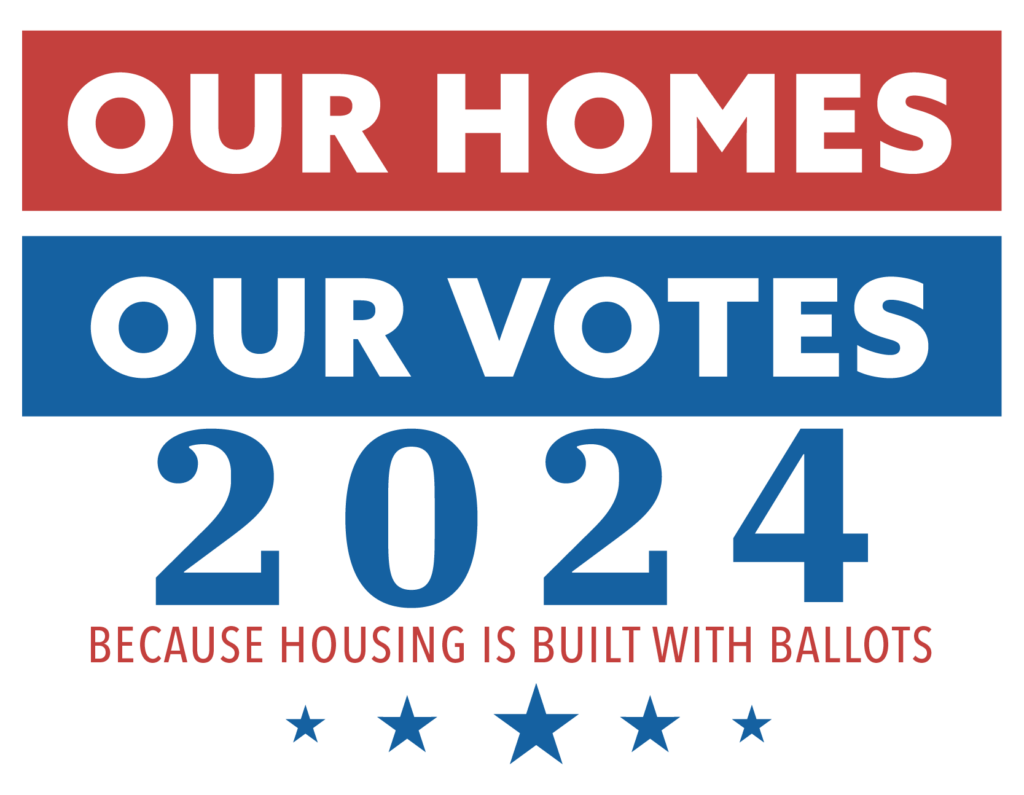Our Homes, Our Votes
About Our Homes, Our Votes
KNOW YOUR VOTING RIGHTS
If you do not have a permanent address, you can still vote no matter what your housing situation is! If you don’t have a permanent address, you can use the address of the city or town hall where you are residing when you fill out your voter registration form.
If someone tells you you cannot vote without a permanent address, your first step should be to contact the Secretary of State’s office at (401) 222-2340 to let them know this is happening.
You can call 211, which has a voting rights hotline.
You can also call the Board of Elections at (401) 222-2345 or your local board of canvassers at your city or town hall.
No one should be turned away at the polls. You have the right to request a provisional ballot if you are a qualified, registered voter and your name cannot be found on the voter list when you arrive at your designated polling place on Election Day, or if you do not bring a current and valid acceptable photo ID to the polling place. Your vote will be counted after your local board of canvassers confirms your eligibility.
Rhode Island General Laws, Section 17-19-49 currently prohibits the display or distribution of any poster, paper, circular or document that would aid, injure or defeat any candidate for public office or any political party or any question on the ballot.
This law prohibits such display within the voting place or within fifty (50) feet of the entrance or entrances to the building in which voting is taking place at any primary or election.
Election officials, that is, wardens, moderators, clerks and bi-partisan supervisors, assigned to a polling place are also prohibited from displaying or wearing any political party button, badge or other device that is intended to aid, injure or defeat the candidacy of any person for public office or any question on the ballot or to intimidate or influence any voter.
The State Board of Elections has oversight of the conduct of elections at polling places and that office should be contacted if you have any specific questions as to what campaigning is allowed.
You can request the assistance of a bipartisan pair of poll workers. Federal and state laws allow voters who are blind, disabled, or unable to read or write to bring a person of their choice into the voting booth. An affidavit must be completed by the person providing assistance. The person assisting cannot be your employer, agent of your employer or officer or agent of your union.
All the information on a voter registration form is public record except your RI driver’s license and Social Security numbers.
The only exception is for victims or potential victims of domestic violence.
If you or a member of your household has a court-ordered restraining order against another person to prevent domestic violence, you may register to vote without making your residence address part of a public record. Contact the Department of State’s Elections Division at 401-222-2340 for an application to join the Address Confidentiality Program and for more information.
Under the Rhode Island Restoration of Voting Rights Act of 2006 (RIRVRA) the Secretary of State must ensure that persons who were not eligible to vote due to incarceration, will have their eligibility restored upon release from prison.
If you are a person convicted of a felony who was registered to vote in Rhode Island and plan to stay in the state, you will have your voter registration restored when you are released from prison. If you are sentenced to home confinement, probation or parole, you are still eligible to vote.

Gender identity should never prevent anyone from being a voter. Learn more about how to update your voter information if you have legally changed your name or need a Voter ID that better reflects your appearance today.
Click here for a short video with more information from the Secretary of State’s office.
You have the right to vote if you have a legal guardian unless the guardianship order specifically suspends your right to vote.
If you cannot vote in person, you have the right to vote by mail. Find out how on the Secretary of State’s vote by mail page.

